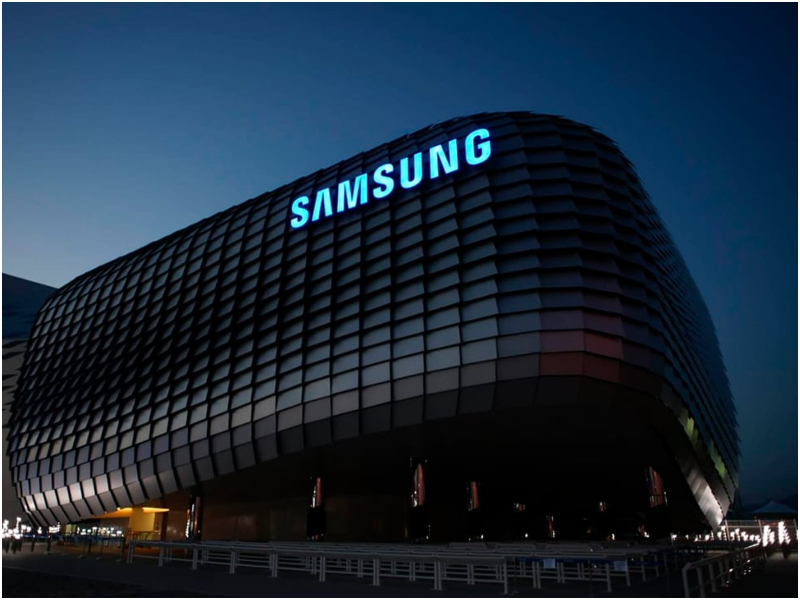Its sales jumped 12.8 per cent to 71.9 trillion won, and net profit soared 329 percent to 6.75 trillion won, the company said in a regulatory filing….reports Asian Lite News
Samsung Electronics said on Tuesday its operating profit went up more than ten-fold in the first quarter, with its chip business shifting to the black for the first time in five quarters.
Samsung Electronics, the world’s largest maker of smartphones and memory chips, said its operating profit reached 6.6 trillion won (US$4.8 billion) for the January-March period, compared with 640.2 billion won a year ago.
Its sales jumped 12.8 per cent to 71.9 trillion won, and net profit soared 329 percent to 6.75 trillion won, the company said in a regulatory filing.
The earnings beat market expectations. The average estimate of operating profit by analysts stood at 5.6 trillion won, according to a survey by Yonhap Infomax, the financial data firm of Yonhap News Agency.
Samsung said it has invested 7.82 trillion won in research and development for the quarter ending March, marking the largest quarterly investment.
The chip business earned 23.1 trillion won in sales for the three-month period through March, with an operating profit of 1.91 trillion won.
It is the first time that the company’s semiconductor segment has posted profit since the fourth quarter of 2022. It logged an operating loss of over 15 trillion won last year amid a downturn in the global chip market.

Strong demand for memory chips lent support to the better-than-expected performance of the company’s chip business on rising DRAM and NAND flash prices, with steady sales of double data rate 5 (DDR5) products and massive solid state drives (SSDs).
The chipmaker said its foundry business is expected to post a double-digit on-quarter growth in the second quarter after bottoming out in the first quarter as customer inventory adjustments have been finalised and line utilisation improved.
Samsung Electronics plans to complete the development of 2nm design infrastructure and prepare infrastructure for various applications in mature processes, such as 14nm and 8nm, to secure customers.
The mobile and other devices business posted 47.3 trillion won in sales and 4.1 trillion won in operating profit in the first quarter.
In particular, sales of 33.5 trillion won and an operating profit of 2.5 trillion won came from the smartphone sector.
Its latest Galaxy S24 series model, the company’s first AI-powered smartphone, led the stellar first-quarter earnings despite a slowdown in the global smartphone market.
The company said shipments of smartphones and tablets amounted to 60 million and 7 million units in the first quarter, respectively, with the average selling price of smartphones reaching $336.
Earnings from its TV business fell from the previous quarter, but demand for large QLED and OLED TVs remained strong.
Chip Supply Chain Set to Expand
Samsung is set to accelerate the expansion of its global semiconductor supply chain in the era of artificial intelligence (AI), following a subsidy of $6.4 billion from the US government and its extended investment plan.
Under the Biden Administration’s announcement, the South Korean chipmaker will receive up to $6.4 billion in grants under the 2022 CHIPS and Science Act, aimed at bolstering US semiconductor production to 20 per cent of the world’s leading-edge chips by the end of the decade.
The funding will support Samsung Electronics’ chip production facilities in Taylor and Austin, Texas, alongside other research centres and packaging facilities, reports Yonhap news agency
This positions Samsung Electronics as the third-largest beneficiary of the US CHIPS Act programme, following Intel with up to $8.5 billion in grants and $11 billion in loans, and Taiwan’s TSMC with up to $6.6 billion in grants and about $5 billion in loans.
At the same time, Samsung will increase its investment in its semiconductor plants in Texas to more than $40 billion from $17 billion.
The additional investment will include the construction of one more semiconductor production facility in addition to the existing plant in Taylor, as well as advanced packaging and research and development (R&D) facilities.
Experts pointed out Samsung’s production capabilities as a world-leading semiconductor producer and commitment to the US investment have led to the third-biggest subsidy deal with Washington.
“Samsung Electronics seems to have been evaluated better than its competitors by the US government in terms of its future investment plans, scale and company value,” Kim Yang-paeng, a researcher at the Korea Institute of Industrial Economics and Trade, said.
“The US grants will help the company reduce the amount of its own money used to invest directly in overseas expansion. It’s good for Samsung Electronics,” he added.
It will also be possible for the South Korean chipmaker to expand participation in the advanced semiconductor supply chain through local production in the United States, where global big tech companies are located.
ALSO READ: Dalit Empowerment Through Entrepreneurship

